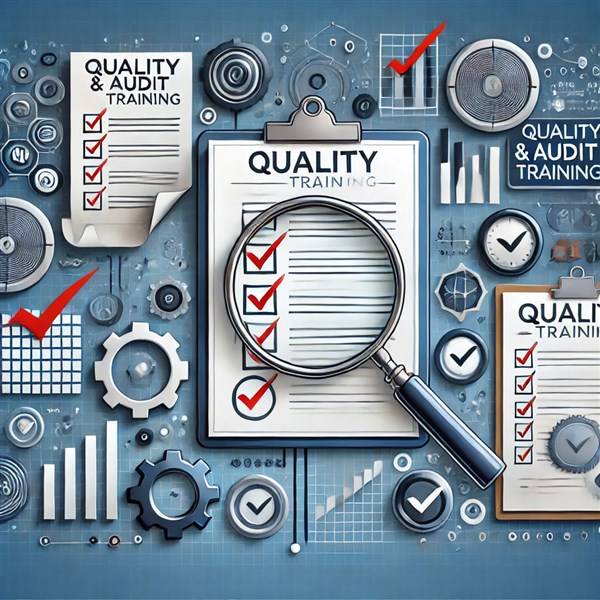Unable to find what you're searching for?
We're here to help you find it
In today’s competitive business landscape, ensuring high-quality standards and compliance with industry regulations is essential for long-term success. Quality & Audit Training plays a critical role in equipping professionals with the knowledge and skills needed to maintain efficiency, reduce risks, and enhance customer satisfaction.
Organizations that invest in quality and audit training can identify process inefficiencies, ensure regulatory compliance, and foster a culture of continuous improvement. In this guide, we will explore the significance of quality & audit training, its benefits, key industry standards, and how it contributes to business success.
Quality & Audit Training refers to the educational programs and certifications that equip professionals with expertise in quality management, compliance auditing, and risk assessment. The training focuses on:
Regulatory bodies impose strict guidelines to ensure fair business practices and consumer safety. Quality & Audit Training helps businesses stay compliant with:
By training employees in these standards, companies can avoid legal penalties, reduce liabilities, and build a trustworthy brand.
Quality training ensures that businesses implement standardized processes to maintain consistency in product and service delivery. This results in:
Businesses that prioritize quality assurance are more likely to gain a competitive edge in the market.
A well-structured audit training program enables businesses to identify risks before they escalate into costly issues. Benefits include:
By proactively addressing risks, organizations can save significant amounts on potential losses and legal complications.
Audits play a vital role in business transparency and accountability. Quality & Audit Training helps internal auditors:
Efficient auditing ensures that businesses adhere to best practices and remain financially stable.
Employees who undergo quality and audit training develop essential skills that contribute to overall business success. These skills include:
A trained workforce leads to improved efficiency, better problem resolution, and enhanced workplace collaboration.
Strong corporate governance is essential for building investor confidence and maintaining ethical business operations. Quality & Audit Training ensures that companies:
Good governance attracts investors and enhances a company’s reputation in the market.
Professionals in quality and auditing can obtain various industry-recognized certifications to enhance their expertise and career growth. Some of the most widely recognized certifications include:
For businesses looking to integrate quality and audit training into their operations, here are some steps to follow:
Identify key areas where quality assurance and auditing need improvement. Consider regulatory requirements, industry standards, and existing process gaps.
Select a training program that aligns with your business goals and industry requirements. Consider:
Encourage employees to participate in real-world auditing scenarios, case studies, and role-playing exercises to enhance practical application.
Quality and auditing should not be a one-time effort. Companies should:
Use performance metrics and audit reports to measure the impact of training programs. Adjust training methods based on feedback and industry trends.
Conclusion
Quality & Audit Training is not just an operational requirement—it is a strategic investment that drives business success. By ensuring compliance, improving product quality, reducing risks, and strengthening corporate governance, businesses can achieve long-term growth and sustainability.
Organizations that prioritize quality and audit training empower their workforce with the skills needed to maintain high standards, build customer trust, and gain a competitive edge in the industry.
If you are looking to enhance your business efficiency, now is the time to invest in quality & audit training. Whether through certifications, online courses, or corporate programs, continuous learning in this field will undoubtedly contribute to organizational success.
If your business is looking to invest in Quality & Audit Training, consider Koenig Solutions, a leading IT training company. Their comprehensive Quality & Audit Courses are designed to provide businesses with the knowledge and skills needed to achieve and maintain a high level of quality.

Aarav Goel has top education industry knowledge with 4 years of experience. Being a passionate blogger also does blogging on the technology niche.










